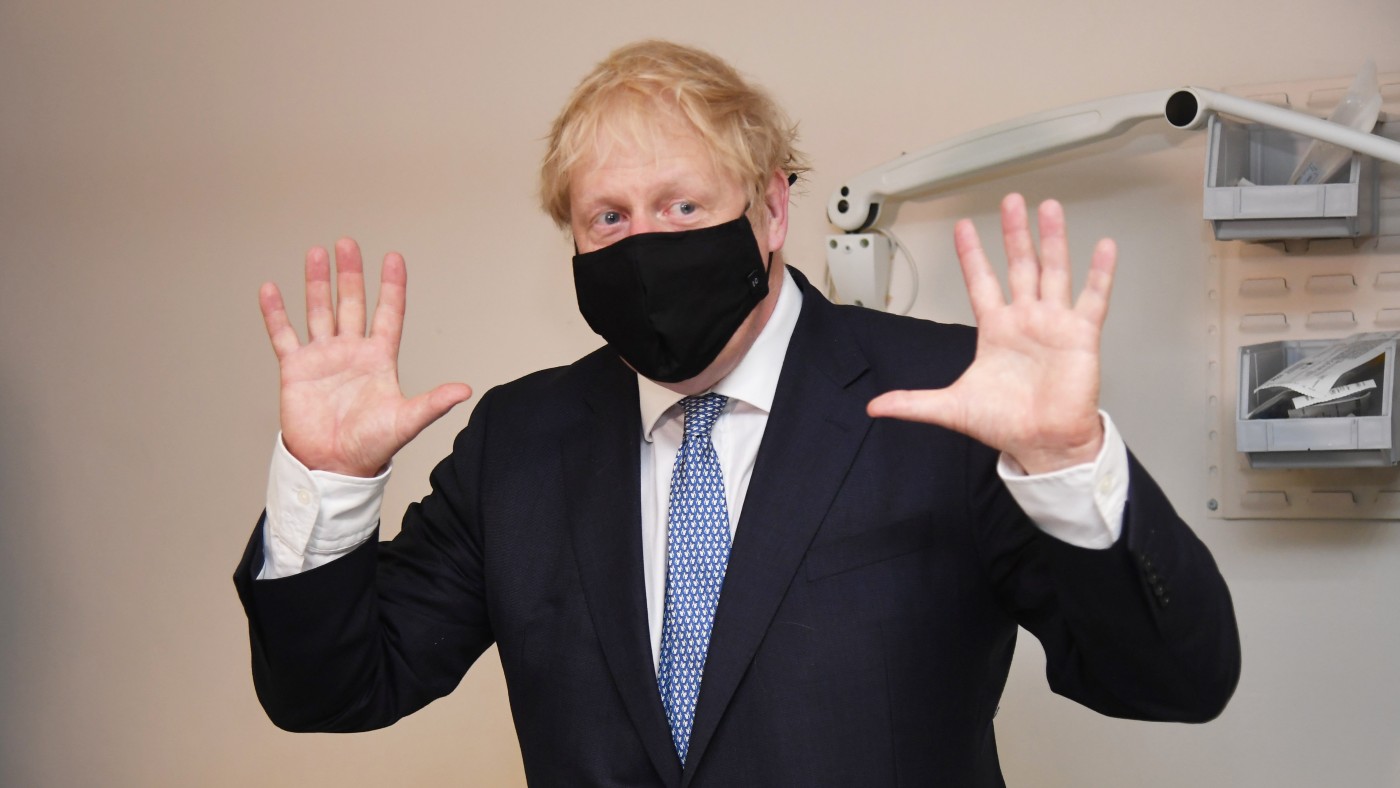Reaction: Boris Johnson fears UK second wave in two weeks - but is he right?
PM makes grim prediction as infections rise across Europe

A free daily email with the biggest news stories of the day – and the best features from TheWeek.com
You are now subscribed
Your newsletter sign-up was successful
Boris Johnson has warned that new restrictions may be placed on arrivals to the UK from other countries, in response to a “second wave” of coronavirus infections sweeping across Europe.
But even as Covid-19 cases climb in nations continent-wide, the World Health Organization (WHO) has cautioned against talking about “waves” of Covid-19, which experts say functions very differently from the seasonal flu.
Where did the UK’s coronavirus arrive from originally?
The Week
Escape your echo chamber. Get the facts behind the news, plus analysis from multiple perspectives.

Sign up for The Week's Free Newsletters
From our morning news briefing to a weekly Good News Newsletter, get the best of The Week delivered directly to your inbox.
From our morning news briefing to a weekly Good News Newsletter, get the best of The Week delivered directly to your inbox.
Although the global pandemic began in China, most of the initial cases of the novel coronavirus in the UK were brought in from other European countries, according to a major analysis released last month.
The study found that the UK outbreak had at least 1,356 origins, with less than 0.1% of the imported cases coming from China. Instead, the majority came “from travel from Italy in late February, Spain in early-to-mid-March and then France in mid-to-late-March”, according to the BBC.
Is Johnson right about how to tackle the potential threat?
Spain’s Prime Minister Pedro Sanchez yesterday denounced the UK’s controversial 14-day quarantine on holiday-makers returning from his country as “unjust”. Urging Britain to rethink the move, Sanchez said that tourists in most Spanish regions would be safer from coronavirus than in the UK.
A free daily email with the biggest news stories of the day – and the best features from TheWeek.com
Johnson defended Downing Street’s decision, which follows a rise in coronavirus cases in parts of Spain. “What we have to do is take swift and decisive action where we think that the risks are starting to bubble up again,” the prime minister told reporters yesterday during a visit to Nottingham.
“Let’s be absolutely clear about what’s happening in Europe, amongst some of our European friends, I’m afraid you are starting to see in some places the signs of a second wave of the pandemic.”
Johnson fears the spike may start within two weeks, the Daily Mail reports.
A Downing Street source told the newspaper that the PM “is extremely concerned by what he’s seeing abroad and fears we could be seeing the same thing here in a fortnight”.
However, some scientists are questioning Johnson’s tactics.
Professor Jose Vazquez-Boland, an infectious diseases expert from the University of Edinburgh, says that while introducing controls on people travelling back from high-risk areas may appear to be a “sensible” thing to do, the possibility that viral outbreaks may be highly localised should be considered.
“Restriction to people’s movements, and specifically on travel to high-incidence areas, is a priori a sensible measure,” Vazquez-Boland said in a statement on the Science Media Centre website. “But such decisions must be carefully balanced and based on solid factual evidence given their very significant implications.
“Spain has been singled out due to the recent increase in reported cases - 8,207 in the last week vs. 5,292 the previous one - without taking into account that these are mostly due to localised spikes in the northeastern part of the country, particularly Catalonia.”
Is Europe on the cusp of a new spike?
European governments are “urging their citizens to be more vigilant amid the lure of summer gatherings and vacations, while health officials warn that lax public attitudes are putting the continent on a dangerous trajectory”, The Washington Post reports.
Although life in most of these countries is returning to something resembling normalcy, some virologists have warned that “openings would inevitably be followed by new infections”, the newspaper continues.
“Others stressed that successful reopening was dependent on citizens wearing masks and maintaining social distance. And there are signs adherence has been slipping.”
Lothar Wieler, the head of Germany’s disease-prevention agency the Robert Koch Institute, has blamed a surge in cases in his country on just such a failure to adhere to guidelines, reports Deutsche Welle.
“The new developments in Germany make me very worried,” Wieler said during a press conference on Tuesday. “The rise has to do with the fact that we have become negligent.”
Why has the WHO objected to talk of coronavirus “waves”?
The UN health agency is urging governments to stop looking at the Covid pandemic through a “flu lens” and has warned against discussing the virus in terms of waves.
“Season does not seem to be affecting the transmission of this virus,” said spokesperson Margaret Harris at a virtual press briefing in Geneva yesterday.
She added: “What we all need to get our heads around is this is a new virus… and even though it is a respiratory virus and even though respiratory viruses in the past did tend to do these different seasonal waves, this one is behaving differently.”
Rather than a first and then subsequent waves, “it’s going to be one big wave”, Harris concluded. “The best thing is to flatten it and turn it into just something lapping at your feet.”
Arion McNicoll is a freelance writer at The Week Digital and was previously the UK website’s editor. He has also held senior editorial roles at CNN, The Times and The Sunday Times. Along with his writing work, he co-hosts “Today in History with The Retrospectors”, Rethink Audio’s flagship daily podcast, and is a regular panellist (and occasional stand-in host) on “The Week Unwrapped”. He is also a judge for The Publisher Podcast Awards.